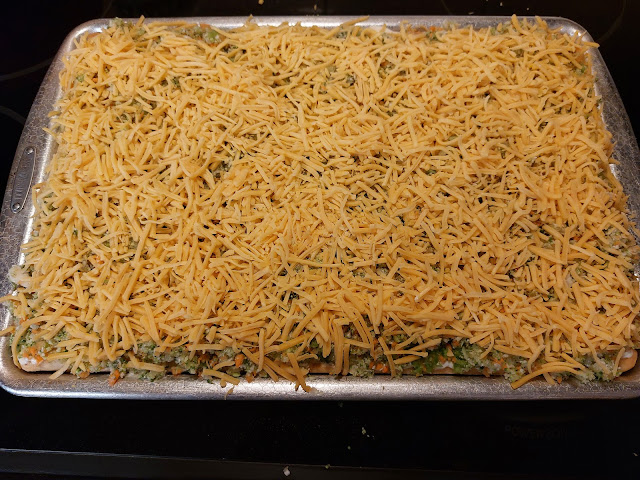A BIG Reason Our Country Is Divided No One Mentions
It's no secret our country is divided, but we may disagree on the reason we function less as one nation, under God, indivisible....
Where have you been pointing the finger (and what finger have you been pointing)?
Are you blaming the media?
Rioters?
Politics?
The pandemic?
All these factors morph together into a virus of their own that afflicts our American family, causing strife, chaos, and division among our friends and neighbors, in our cities and neighborhoods, and even in our own homes, but a HUGE reason our country is divided is right in front of our faces, literally.
The culprit? Social media.
Social Media Ferments Hatred
Anyone who dared to agree with "Sandy" entered bloody, shark-infested waters. Here are just a couple responses:
- Perhaps you should try reading the part about loving your neighbor. Turn the channel. I'm sure no one cares if you watch. No one wants a bigoted fan base anyway.
- Also being so hateful towards people who aren't just like you. It's beyond me how someone can be intolerant and claim Christian values.
This is just one small sampling of what happens on social media every minute of every day regarding every topic under the sun.
Social media allows influencers to make statements and then release their "followers" to annihilate anyone who disagrees.
This is not how we should be treating people!
People are like snowflakes, and though we tend to gravitate to those who think like we do, none of us is exactly alike. We are unique. We tell our kids, as our mentors once told us, just be yourself, but in the world of social media, being yourself too often results in character assassination.
The buzz word just a few years ago was authenticity. People craved connection to those who were real, genuine, and unpretentious. What happened? In the span of a nanosecond, the honesty of authentic people turned them into targets for the rising cancel culture.
Social Media Promotes Cancel Culture
Social Media Creates Trolls
There's nothing more irksome than joining a Facebook group or following someone on Twitter based on common interests, only for a troll to stir up trouble.
If you hate Italian food, would you join a group that shares recipes for Italian dishes and then bash all the members for liking Italian cuisine? Makes no sense, right? Well, that's exactly the kind of thing trolls do. They infiltrate groups like undercover operatives bent on sabotage.
In fact, some of them are.
Politicians are notorious for hiring professional trolls to push back on sites that speak against them or the type of policies they are pedaling.
Whether they are paid by politicians, special interest groups, or corporations, the purpose of trolls is to manipulate public opinion.
When an entire army of trolls is unleashed on a particular site or person, it can sound like the "majority" of people share the same sentiment when, in fact, they represent a small percentage of dissenters. Just because trolls are loud doesn't mean there are a lot of them--they just sound bigger.
Then there are trolls who simply suffer from some type of psychosis because they just enjoy upsetting people.
Social Media Is Isolating, Full of Judgment, & Leads to Sniping
Social media is really an oxymoron.
It allows you to connect with people all over the world while remaining completely isolated. It's impossible to really know someone on social media when everyone puts their best foot and face forward.
Without body language, speech inflection, or reading someone's eyes while they talk, brief posts on social media can easily be taken out of context, misunderstood, or "heard" in a way that isn't intended.
When signals get crossed, the sniping begins.
Sniping is when people respond to your posts with a short, sarcastic or critical jab that delivers a death blow punch on impact. At least they hope. Snipers tend to take pride in their verbal prowess and crafty response to your initial remark.
If you're in a local school parents Facebook group and disagree with a school board decision, there's the parent who fires back with, I can't wait to see your name on the ballot next time there's an opening. It's not snarky enough to respond with something like, Why don't you bite me? You either need to vaporize them with a verbal missile or let it go. Definitely never hit the angry emoticon because they will be pleased to see they ticked you off and you couldn't top them. Best just to let them wonder if you even read their remark.
God forbid you're a white, middle-aged female because there's a whole litany of Karen remarks ready for you if you dare express a valid complaint.
When the blasts come, it's very hard to walk away without returning fire. The person who strikes with the best jab wins.
People cast judgment on others via social media, without knowing anything about them. A woman by the last name of Schmidt commented on an online article. Her post wasn't triggering or hostile--it was just a simply stated opinion. Those who disagreed torched her, saying she was German, which explained why she sounded so mean. Did it occur to anyone that Schmidt might be her married name and not indicative of her genealogy? Even if she did have German roots traced generations back on the family tree, she most likely sees herself as American. How many of us celebrate a heritage we never knew?
Another woman, apparently a stepmom, voiced her angst on social media about the stress of dealing with her blended family. Since she included Christian in her profile, she was blasted for her unfavorable comments towards her step kids. People who saw her post told her there was a special place in hell for her, and some even threatened to track her down and report her to her employer and church pastor.
Social media has caused us to devolve. Anonymity emboldens people to be vicious. Having an opinion that's different from others does not mean we are bad people, haters, or some other nasty term a complete stranger decides to label us.
Teens are particularly at risk. Mean kids take advantage of social media and hurt classmates far worse than a punch in the face ever could.
Instead of bringing us together by focusing on what unites us, social media just replaces the middle school bully you thought you were finally rid of.
How Can We Avoid the Pitfalls of Social Media But Still Enjoy Its Benefits?
Social media has become weaponized, often causing more harm than good.
There is a silver lining to social media though. It offers these benefits:
- We have immediate access to information.
- We can contact someone in an instant and respond to others at our leisure.
- We can see people, places, and things we wouldn't get to otherwise.
- We can "stay in the loop" with people we can't be with in person.
- We can use it to promote our businesses, clubs, organizations, etc.
- It provides an outlet for the expression of our thoughts and feelings.
One way to enjoy social media without the stress is to limit the number of friends you have on Facebook and be very selective about those you follow on Twitter and Instagram.
When used as a relaxing pastime, social media should be a place to unwind, not get agitated. What's the point of arguing with complete strangers you stumble across on Twitter? Attacking each other only raises your blood pressure and destroys your opinion of humanity. Spewing hate at each other isn't going to change anyone's mind about a topic, so why bother?
Learn to scroll by without commenting!
When possible, don't use your real name. Facebook only allows you to have one account with your real name. At least that's the rule. (Spammers and trolls seem to know how to circumvent the policy). Since you're most likely using your real name on Facebook, be careful, especially if you join groups that are public rather than private. Anyone can see your posts in a public group, and the last thing you need is a stalker. Remember your audience. If you join local groups and make enemies, you might run into them at the grocery. Always check your privacy settings to make sure only your friends can see your posts, unless you don't mind the whole world knowing your business.
Your username on Twitter doesn't need to be your real name, so make sure it isn't. It's way too easy to cross paths with random people who are looking for an axe to grind.
On all social media, use the blocking feature liberally. You just don't need the negativity.
Limit the amount of time you spend on social media. People spend hours each day engaging on the various platforms. The longer you're on it, the more likely you're going to tangle with the wrong person. Use social media to check the things most important to you, post a quick comment or photo, and then disconnect. If you comment on something that could push someone's hot button, turn off notifications to the post so you won't even see if they try to retaliate.
Even when you're part of an online group to connect with others with mutual interests, you're not immune to criticism. Maybe you're a movie buff, so you join a Facebook group where your favorite movie genre is discussed. What happens if everyone loves a movie you think is a dud? If your opinion doesn't align with the masses, you might be slammed by the same people you thought were in your camp. Differing opinions simply aren't tolerated on social media. It's too easy, even in groups, for people to divide into us versus them. If this happens, remember to block, unfollow, and turn off notifications to those who refuse to respect your opinion.
Get Together With People In Person
Social media is no replacement for human interaction.
You would never say to someone's face the direct, hostile insults you might lob at them while hiding behind a computer screen or device.
How did people survive for decades without social media?
They called each other on the phone and talked.
They invited people over for dinner or connected with others over coffee or lunch breaks. They lingered after church to talk to people instead of rushing out the door.
If they saw someone sitting on their front porch, they stopped to chat. We need more houses with front porches.
People used to write letters to friends and loved ones, sharing their hearts with those who cared rather than putting on pretenses on social media. They mailed real birthday cards and not generic e-greetings.
Kids spent time playing outdoors with friends and passing the time with their families, not looking down at hand-held devices for hours on end.
Instead of social media, people enjoyed social gatherings. They were in card clubs, quilting groups, fellowships, and part of community organizations that served a positive purpose.
People understood the Golden Rule--treat others the way you want to be treated. That concept goes out the window with social media.
Ignorance can be bliss. We didn't used to know the random thoughts and political positions of people we now follow on Twitter, and maybe we were better off that way. The more you know about some people, the less you like them.










.png)






Comments
Post a Comment